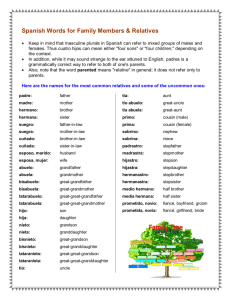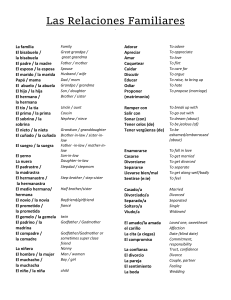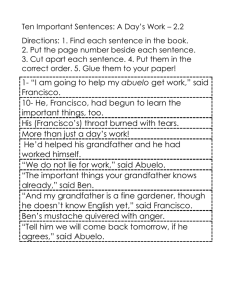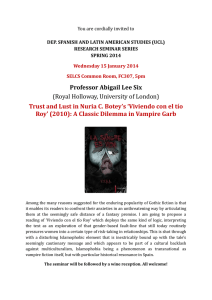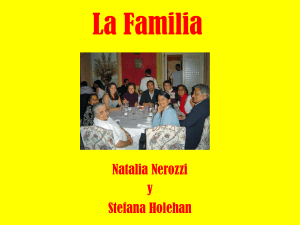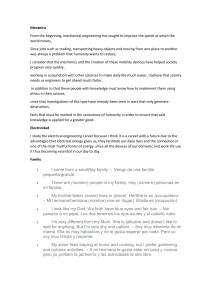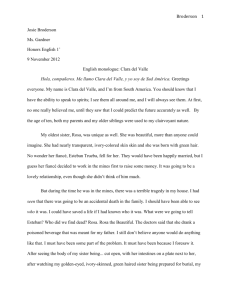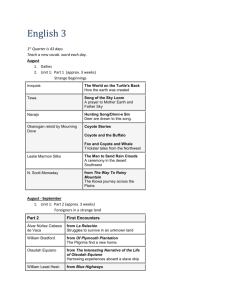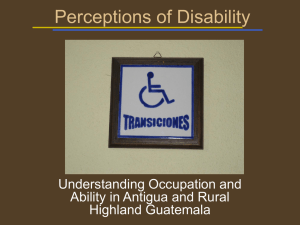Spanish Words for Relatives
advertisement
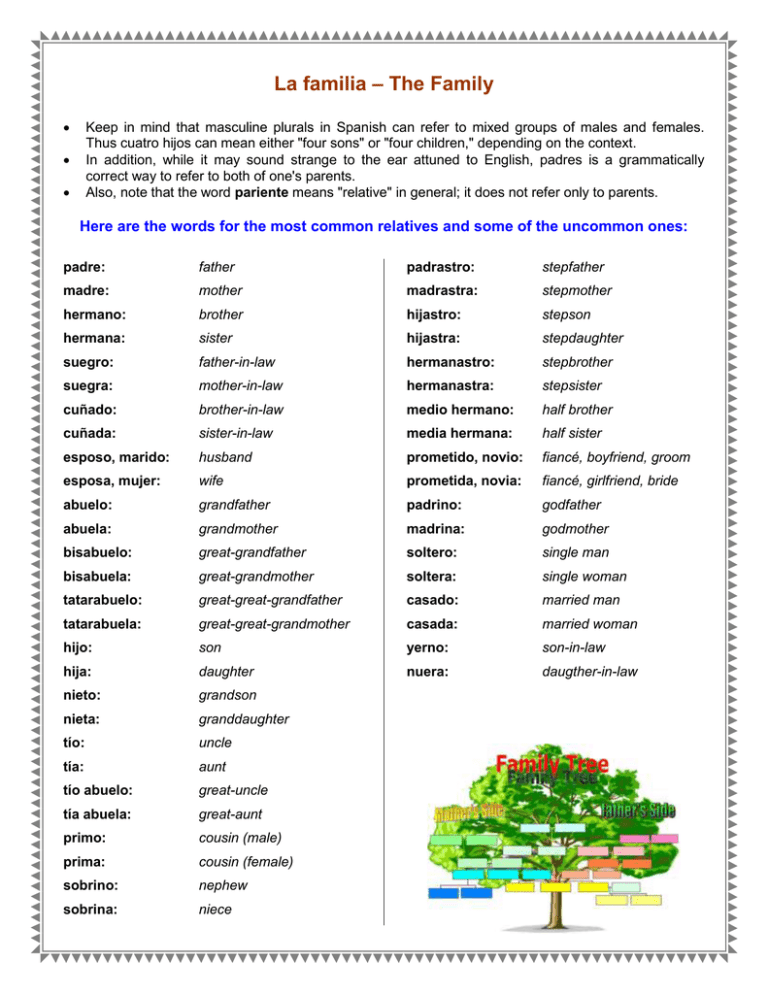
La familia – The Family Keep in mind that masculine plurals in Spanish can refer to mixed groups of males and females. Thus cuatro hijos can mean either "four sons" or "four children," depending on the context. In addition, while it may sound strange to the ear attuned to English, padres is a grammatically correct way to refer to both of one's parents. Also, note that the word pariente means "relative" in general; it does not refer only to parents. Here are the words for the most common relatives and some of the uncommon ones: padre: father padrastro: stepfather madre: mother madrastra: stepmother hermano: brother hijastro: stepson hermana: sister hijastra: stepdaughter suegro: father-in-law hermanastro: stepbrother suegra: mother-in-law hermanastra: stepsister cuñado: brother-in-law medio hermano: half brother cuñada: sister-in-law media hermana: half sister esposo, marido: husband prometido, novio: fiancé, boyfriend, groom esposa, mujer: wife prometida, novia: fiancé, girlfriend, bride abuelo: grandfather padrino: godfather abuela: grandmother madrina: godmother bisabuelo: great-grandfather soltero: single man bisabuela: great-grandmother soltera: single woman tatarabuelo: great-great-grandfather casado: married man tatarabuela: great-great-grandmother casada: married woman hijo: son yerno: son-in-law hija: daughter nuera: daugther-in-law nieto: grandson nieta: granddaughter tío: uncle tía: aunt tío abuelo: great-uncle tía abuela: great-aunt primo: cousin (male) prima: cousin (female) sobrino: nephew sobrina: niece
